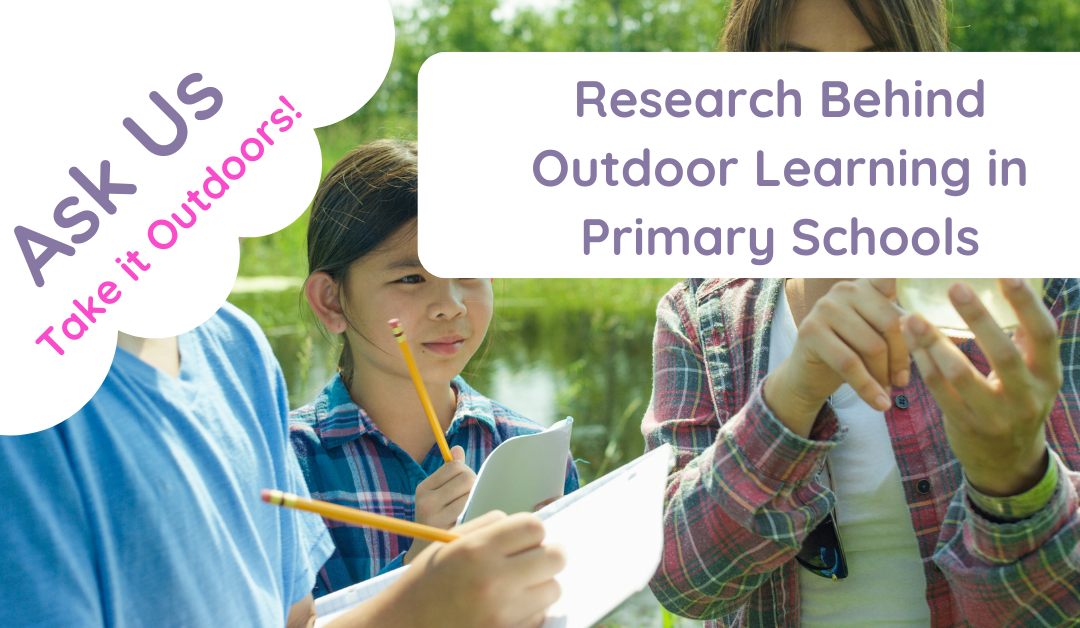What Is the Research Behind Outdoor Learning in Primary Schools?
Outdoor learning in primary schools has gained significant attention over recent years due to its numerous educational and developmental benefits. This approach involves taking students outside the traditional classroom to engage in hands-on, experiential learning activities in natural environments. Research has consistently shown that outdoor learning can enhance academic performance, improve physical health, support social and emotional development, and foster a deeper environmental connection. In this blog post, we will delve into the research behind outdoor learning in primary schools, exploring its benefits and the evidence supporting its effectiveness.
Academic Benefits of Outdoor Learning
1. Enhanced Engagement and Motivation
Studies have shown that outdoor learning increases student engagement and motivation. The natural environment stimulates curiosity and interest, making learning more enjoyable and dynamic.
External Resource: Edutopia – The Benefits of Outdoor Learning
2. Improved Academic Performance
Research indicates that students who participate in outdoor learning activities tend to perform better academically. Outdoor learning has been linked to higher scores in reading, writing, maths, and science.
External Resource: American Institutes for Research – Effects of Outdoor Education Programs
3. Development of Critical Thinking Skills
Outdoor learning promotes critical thinking and problem-solving skills. Students often face real-world challenges that require them to think critically and develop creative solutions.
External Resource: National Wildlife Federation – Benefits of Outdoor Learning
Physical Health Benefits
1. Increased Physical Activity
Outdoor learning naturally incorporates physical activity, which is essential for children’s health and development. Activities such as hiking, gardening, and playing games help improve fitness and motor skills.
NHS – Physical Activity Guidelines for Children
2. Improved Mental Health
Being in nature has been shown to reduce stress and anxiety, improving overall mental health. The calming effects of the natural environment support emotional regulation and mental wellbeing.
Healthline – Being Outdoors Helps Mental Health
3. Enhanced Sensory Development
Outdoor environments provide rich sensory experiences that enhance sensory development. Children can see, hear, touch, and smell various elements of nature, which supports sensory integration.
External Resource: Early Childhood Education Journal – Sensory Integration in Outdoor Learning
Social and Emotional Benefits
1. Development of Social Skills
Outdoor learning often involves group activities that require cooperation and communication. These experiences help children develop essential social skills such as teamwork, negotiation, and empathy.
External Resource: 1000 Hours – Emotional Intelligence and the Outdoors
2. Enhanced Emotional Resilience
Research suggests that outdoor learning helps build emotional resilience. Children learn to face and overcome challenges in a supportive, natural environment, which boosts their confidence and self-esteem.
3. Improved Behaviour
Studies have found that children who participate in outdoor learning exhibit improved behaviour in the classroom. The positive effects of outdoor activities help reduce disruptive behaviour and increase attention span.
External Resource: Behavioural and Brain Functions – Impact of Outdoor Learning on Behaviour
Environmental Awareness
1. Increased Environmental Stewardship
Outdoor learning fosters a connection with nature and a sense of responsibility for the environment. Students learn about ecology, conservation, and sustainability, which promotes environmental stewardship.
External Resource: WWF – Teaching Kids About Environmental Conservation
2. Understanding of Ecological Systems
Outdoor learning provides hands-on experiences that help students understand ecological systems. They observe and interact with natural habitats, gaining insights into biodiversity and environmental processes.
External Resource: National Geographic – Benefits of Outdoor Education
Implementing Outdoor Learning in Primary Schools
1. Planning and Preparation
Effective outdoor learning requires careful planning and preparation. Schools need to identify suitable outdoor spaces, ensure safety, and integrate outdoor activities into the curriculum.
External Resource: Outdoor Classroom Day – Planning Tipshttps://outdoorclassroomday.com/wp-content/uploads/2019/04/OPAL-10-tips-to-make-playtimes-better.pdf
2. Curriculum Integration
Outdoor learning should be seamlessly integrated into the existing curriculum. Subjects like science, maths, literacy, and art can be taught using outdoor environments to enhance learning.
External Resource: The Muddy Puddle Teacher Resources
3. Teacher Training
Teachers need proper training to implement outdoor learning effectively. Professional development programmes can equip teachers with the skills and knowledge needed to facilitate outdoor activities.
4. Community Involvement
Engaging the community in outdoor learning initiatives can provide additional resources and support. Parents, local organisations, and businesses can contribute to creating enriching outdoor learning experiences.
5. Evaluating Outcomes
Regular assessment and evaluation of outdoor learning programmes help ensure their effectiveness. Schools should gather feedback from students and teachers to continuously improve outdoor learning experiences.
Recommended Resources from Muddy Puddle Teacher
Conclusion
The research behind outdoor learning in primary schools demonstrates its extensive benefits for academic performance, physical health, social skills, emotional resilience, and environmental awareness. By integrating outdoor learning into the curriculum, educators can provide enriching, hands-on experiences that enhance students’ overall development. Implementing outdoor learning requires careful planning, community involvement, and ongoing evaluation, but the rewards for students are well worth the effort. Embrace the natural environment as a classroom and watch your students thrive as they explore, discover, and learn.


